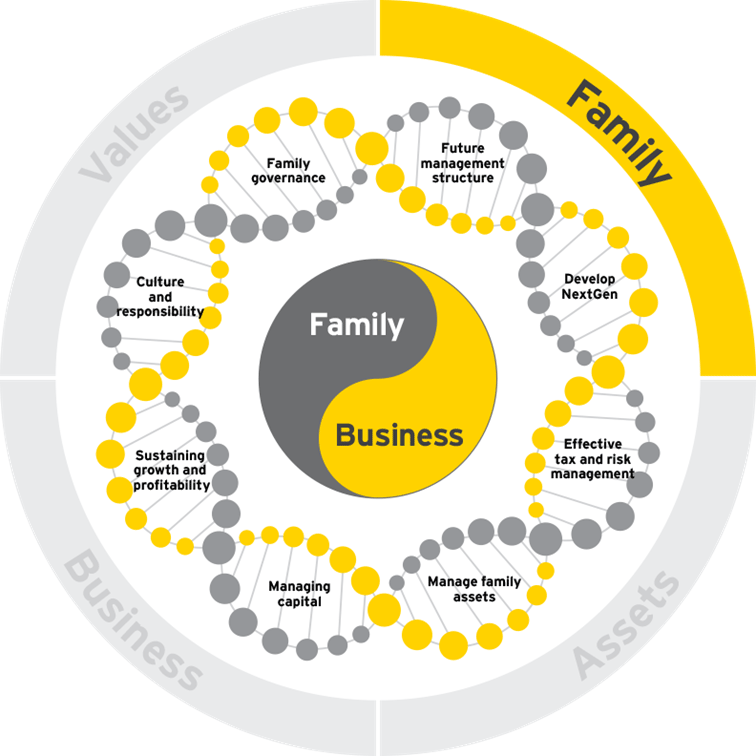EY refers to the global organization, and may refer to one or more, of the member firms of Ernst & Young Global Limited, each of which is a separate legal entity. Ernst & Young Global Limited, a UK company limited by guarantee, does not provide services to clients.
Your family: Life and legacy

What EY can do for you
The main reason why the majority of family businesses no longer exist beyond the third generation is the breakdown of family relationships. Managing conflict can be a challenge for any family, and it’s important to have an appropriate governance framework in place so family members can manage their issues and differences in a way that preserves cohesion and does not jeopardize the future of the business.
Succession planning, which entails contemplating change, retirement and mortality, can be challenging. Yet families who succeed in preserving their legacy over multiple generations do not leave this to chance. They consciously invest in family. By doing so, they both prepare the next generation for the opportunities and responsibilities of managing significant wealth, so that the family is united by a common sense of purpose and shared values.
Investing in family also helps keep the options open in terms of the succession plan for the family business. Most important, it helps avoid the deterioration of family dynamics that can make selling the business the only option.
As an independent and trusted advisor, we can work with the family to guide and facilitate succession planning and can help ensure that family matters are addressed constructively as part of the process.
Focus areas
The four areas of focus in succession planning are leadership, ownership, legacy and values, and family wealth.
Important leadership aspects include who should lead the family business, who decides on succession and what opportunities are available for family to work in the business.
Ownership priorities include who should own the business, how to structure the ownership, how to structure governance and how to handle exits.
The family must define its legacy and values and determine how to maintain them, how to manage conflict, and what other support is required to achieve a smooth succession.
For family wealth, important considerations are how to manage the wealth, transfer it to the next generation and protect it.
Another key focus is the development of the next generation to provide a pool of successors and to pass on family values and ensure a sense of engagement.


